Other
All offers in
Other
Filter
Compare
14
Other
from
8
vendors
(1
-
10)
-
ASCON Authenticated Encryption & Hashing Engine
- The ASCON-F IP core is a compact, high-throughput hardware engine implementing the lightweight authenticated encryption with associated data (AEAD) and hashing algorithms described in the Ascon v1.2 specification.
- A single instance of the ASCON-F IP core can encrypt or decrypt data using the Ascon-128 and Ascon-128a functions or perform Cryptographic hashing Hash per the Ascon-Hash and Ascon-Hasha functions.
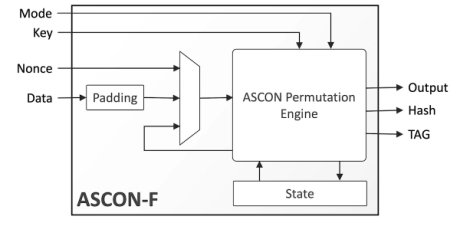
-
Public Key Accelerator
- Modular exponentiation operations with up to 4096-bit modulus
- Prime field ECC operations with up to 571-bit modulus
- Fastest implementation is 58 kGE and 68 Op/s for 2048-bit RSA, 431 Op/s for 1024-bit RSA, 150 Op/s for 384-bit scalar multiplication
- Smallest implementation is 33 kGE and 67 Op/s for 1024-bit RSA, 24 Op/s for 384-bit scalar multiplication
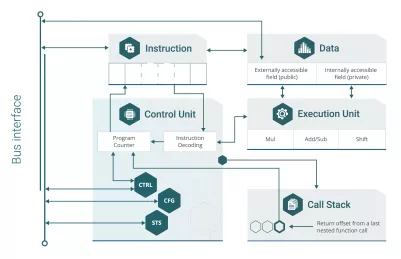
-
ECC7 Elliptic Curve Processor for Prime NIST Curves
- Elliptic Curve Cryptography (ECC) is a public-key cryptographic technology that uses the mathematics of so called “elliptic curves” and it is a part of the “Suite B” of cryptographic algorithms approved by the NSA.
- The design is fully synchronous, with the exception of the seed part, and available in both source and netlist form.
- The core is supplied as portable Verilog (VHDL version available) thus allowing customers to carry out an internal code review to ensure its security.
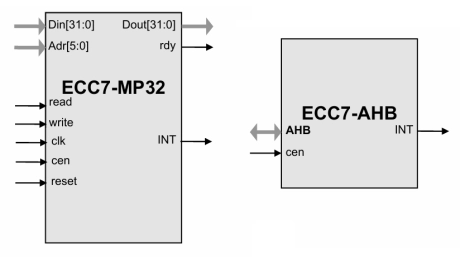
-
Curve25519 Key Exchange and Digital Signature IP Core
- Minimal Resource Requirements: The entire XIP4003C requires less than 800 ALMs (Cyclone® 5) and uses only 1-2 multipliers/DSP Blocks2 and 1-2 internal memory block in a typical FPGA implementation.
- Constant Latency: The execution time of XIP4003C is independent of the key value, and consequently provides protection against timing-based side-channel attacks.
- Performance: Despite its small size, XIP4003C can support more than 100 key exchange or digital signature operations per second.
- Standard Compliance: XIP4003C is compliant with RFC7748, RFC8032, and the draft version of FIPS 186-5. XIP4003C can be used as a part of many public-key protocols including IKEv2 (RFC 8031) and TLS 1.3 (RFC 8446).
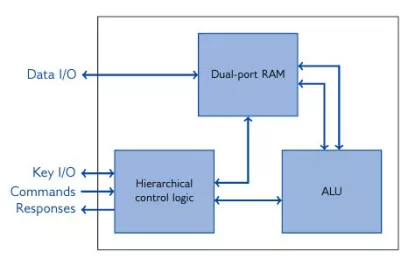
-
Curve25519 Key Exchange IP Core
- Minimal Resource Requirements: The entire XIP4001C requires less than 1k Logic Elements and uses only 1-2 multipliers/DSP Blocks2 and one internal memory block in a typical FPGA implementation.
- Constant Latency: The execution time of XIP4001C is independent of the key value, and consequently provides protection against timing-based side-channel attacks.
- Performance: Despite its small size, XIP4001C can support more than 100 key exchange operations per second.
- Standard Compliance: XIP4001C is compliant with RFC7748, and can be used as a part of many public-key protocols including IKEv2 (RFC 8031) and TLS 1.3 (RFC 8446).
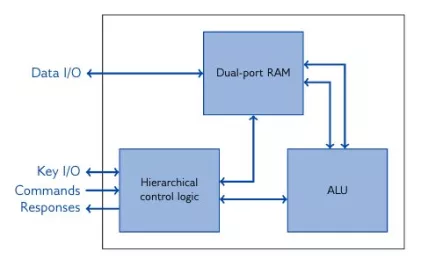
-
Ascon, A Lightweight Cryptographic Suite for AEAD and Hashing
- Small Resource Requirements
- Versatile Algorithm Support
- Secure Architecture
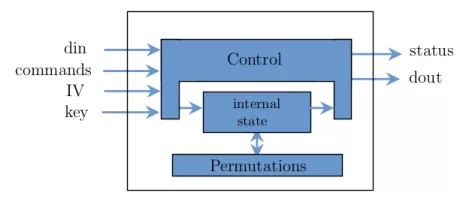
-
Public-Key Cryptography PKCS IP Core
- Comprehensive implementation in accordance with RSA Laboratories' Public-Key Cryptography Standards (PKCS) series, PKCS #5 v2.0
- Support for SHA256 algorithm
- Technology-independent HDL model
- Simple external interface for easy adaptation
-
ECDSA (Elliptic Curve Digital Signature) IP Core
- Full ECDSA implementation adhering to Standards for Efficient Cryptography (SEC)
- Bitcoin algorithm support
- Technology-independent HDL model
- Simple external interface for easy adaptation
-
Elliptic Curve Digital Signature generation and verification
- Supports any EC over GF(p) of the simplified Weierstrass form that is commonly defined in ECC standards such as NIST, SEC2, Brainpool
-
32-bit Public Key Accelerator
- Offloads the computationally intensive parts of public key cryptography
- Support for ARM® AMBA® AHB™/AXI™ and synchronous RAM interfaces
- Integer operations (512-, 768-, 1024-, 1536-, 2048-, 3072-, and 4096-bit)
- ECC-GF(p) operations (160, 192, 224, 256, 384, 512 and 521-bit)